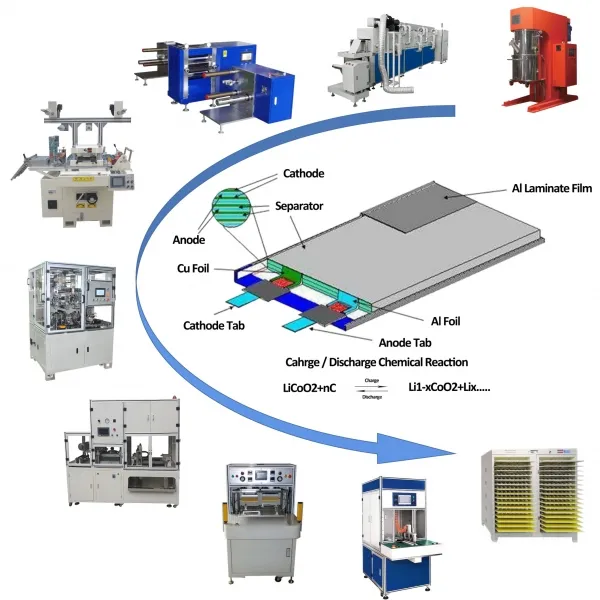Lithium battery production equipment is highly customized and non-standardized, designed and developed based on the specific requirements of downstream customers. Depending on the working principles, it can be categorized for producing ternary lithium, lithium iron phosphate, and solid-state batteries. While customer demands for battery performance may vary, the overall production process follows similar stages, which can be divided into three main sections: the front-end, mid-section, and back-end.

Front-End: Electrode Sheet Preparation
The front-end involves electrode sheet preparation, which includes processes such as mixing, coating, calendaring, slitting, and tab forming. Among these, the coating machine is the most critical piece of equipment.
Mid-Section: Cell Assembly
The mid-section focuses on cell assembly, including processes like winding or stacking, casing, and electrolyte injection. The winding or stacking machine plays a pivotal role in this stage.
Back-End: Electrochemical Processes
The back-end is where the electrochemical processes occur, playing a crucial role in determining battery quality and performance. Key processes in this stage include:
Formation: This process involves charging and discharging the battery cells for the first time to activate the chemical reactions within the electrodes. Formation equipment ensures consistent and efficient activation of each cell.
Grading: After formation, the cells undergo capacity grading to ensure uniform performance in the final battery pack. Grading machines sort cells based on their capacity and other critical parameters.
Testing: Comprehensive testing is conducted to evaluate cell safety, performance, and reliability. Testing equipment includes systems for voltage, current, and impedance checks, ensuring that only high-quality cells proceed to the next stage.
battery pack assembly: In the final stage, individual cells are assembled into modules and packs. This process involves welding, insulation, and structural assembly to create a complete battery pack ready for end-use applications.
Why Focus on Back-End Equipment?
Back-end equipment is critical because it directly impacts the safety, efficiency, and overall performance of lithium batteries. These machines must offer high precision, reliability, and scalability to meet the demands of various applications such as electric vehicles, energy storage systems, and portable electronics.
Conclusion
As the demand for lithium batteries grows, the importance of advanced and customized production equipment cannot be overstated. By focusing on the back-end processes, manufacturers can ensure that their batteries meet stringent quality standards and cater to diverse market needs.
Our company specializes in producing advanced back-end lithium battery production equipment, ensuring high-quality and reliable solutions for your battery manufacturing needs.



